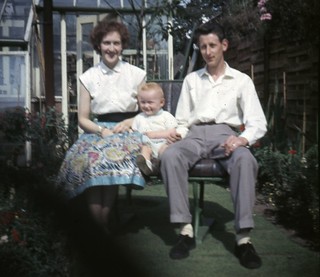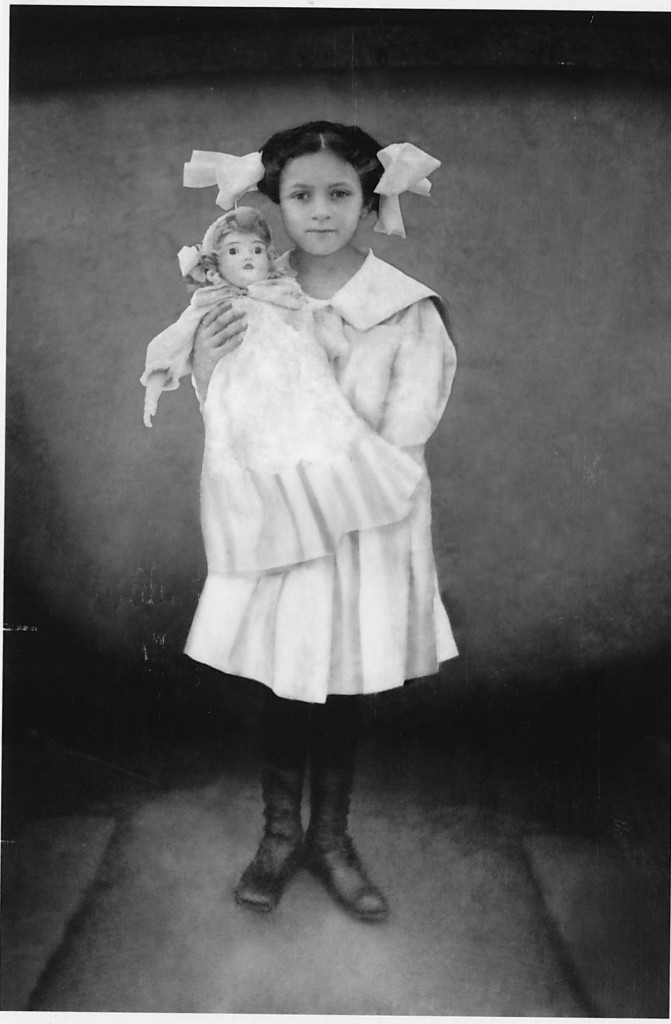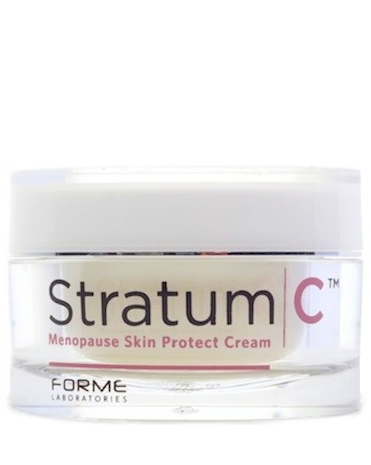The grandmothering clause
Researchers have long attempted to unravel the reason that menopause exists and the role that the loss of reproduction plays in our evolution. Among the various theories that have been tossed around, grandmothering, first proposed in an article that appeared in The Proceedings of the National Academy of Sciences in 1998, continues to maintain traction. This theory proposes that the lifespan of aging women is prolonged beyond reproduction to allow them to help provide for their daughter’s offspring and enhance the next generation’s fertility. This theory is further supported by a study published in the Proceedings of the National Academy of Sciences in 2008 that suggested that women rapidly stop producing reproductive hormones around mid-life to reduce competition with younger females in the same family unit…in other words, a majority of women cease to have the ability to breed so that the next generation can step in. Evolutionary-wise, this hard-wiring was established to reduce the likelihood of reproductive conflict with younger females who might marry their sons.
Grandmothering, albeit not a legitimate term, is understood by just about every woman that I know. And it’s not surprising that grandmothers apparently play as much a role in our later years as perhaps they did in when we were children.
The photo accompanying this post is one that was taken of my grandmother, Doris Baum Scherer when she was about six or seven years old. Her resolute expression is striking, and she carried this resolution with her to her death. I think about my grandmother every single day.
What I remember most about her is her ability to overcome obstacles; she was never given the opportunity to attend college and yet her intelligence and smarts eventually led to numerous opportunities. During WWII she led the local Ladies Auxiliary to support the veterans and long before then, she taught herself to drive. And like her sister and mother, she was a sharp businesswoman. She provided substance and sustenance to my life, in particular, reminding me when I ventured out of the corporate world to become self employed, that I could do anything and be anything that I set my mind to. And while my path provided neither my mother nor her an opportunity to provide for my offspring, she embodied the tenets of the Grandmothering Clause; my grandmother was an expert at grandmothering.
Ironically, I have reached an age where many of my contemporaries have become or are becoming grandmothers; I bide them well in the grandmothering journey, a journey whose reach and influence are immeasurable. and, to my grandma? Thank you for your gift.
Read More
Guyside: Dealing with aging parents, guyside style.

As parents age, we have to move from being “their child” to mutual independence to their dependence on us. It’s not always easy.
One of the things about getting to this age (in my case, 47) is that you get the odd experience of parenting your parents.
I was about the last child in my generation. With both parents near the end of large families, I have a ton of cousins, many of whom are well into retirement by now. And as a late child (born to 41-year-olds), my mom (and my dad, until his death in 2012) is well into seniorhood.
It’s probably no surprise that the dynamics change when your parents age. As a child, we strive for independence from our parents. That lasts for some time and then, like a wave collapsing in on itself and running back into the ocean, dependence begins to reach back out from your parents to you.
Things that were easily done for years become more difficult. It becomes more challenging for the senior citizen to take on some of the frustrations of daily living. And if physical illnesses encroach, as they almost certainly will, that process can accelerate more and more as time goes on.
So here, from my own experience and with the help of some references I’ve found, are some tips for dealing with aging parents:
- Find ways to detach emotionally just a bit. It’s difficult to hear a parent in emotional or health difficulty. But if your emotions take over, it’s going to be difficult to truly help them. Create an outlet for your emotions, but then work on logic.
- Sometimes just listening is enough. As a guy, I know only too well I can jump to SOLVING THE PROBLEM. But sometimes, your parent won’t want a solution; they’ll want a set of ears.
- Talk to your parent or parents about power of attorney. There are times at which you may need to intercede. It’s easier to do that if you have arranged things in advance.
- Support anything your parents are interested in doing that will help their physical, emotional, or mental health. Got a 97-year-old (like my aunt) who loves to swim? Make sure he or she gets to the pool. Is someone a bridge player? Find them a club. Often, seniors lose friends and family members as they age, so new social links are important.
- Build relationships with their health care providers. As seniors age, it’s more likely they’ll have serious health concerns crop up. And seniors are more likely to have a more deferential attitude toward doctors and medical professionals than younger people. So it’s important that you be able to play a role in their health care. This doesn’t mean taking over; it can mean being a trusted resource, an advocate, or maybe just a drive to an appointment.
The promise of the menopause skin cream – part 2
Do you remember Mikey, the kid who didn’t like anything, except Life cereal? Well, when it comes to menopausal promises, I’m just like Mikey. However, I am going to eat my words this month, words slamming Stratum C and the promise to restore the youthful glow. In October, I shared news about Stratum C, a new cream formulated specifically for menopause skin that had been shown to relax facial muscles AND build collagen, while simultaneously moisturizing, promoting elasticity and providing a radiant glow. After I slammed the manufacturers, they offered to send me a sample with the mutual understanding that I would try it for a month but that I made no promises.
The verdict? I love the way that Stratum C feels going on and I will state unequivocally that in this subject of one, it did appear to soften my lines and improve my skin’s moisture levels and appearance. Whether or not regular use would yield significant, lasting results is beyond my one month test but I will say that I liked it so much, that I’d be inclined to try it for a longer time period. However, I’m sticking by my guns with regard to Stratum C’s ultimate ability to reverse the ravishes of environment and natural aging. And while I will reiterate that there is absolutely no doubt that one of the peptides contained in this new cream and serum stimulates production of collagen (there are published studies demonstrating that), like a majority of dermatologists will tell you, a skin cream alone won’t turn back the signs of time permanently.
Keep in mind that, I only use skin products recommended by my dermatologist (I have rosacea and its accompanying acne issues). But guess what? I’m ready to do some show and tell the next time I visit him.
Hey Forme Laboratories! I like it. And as you’ve come to learn, that’s pretty unusual when it comes to products geared toward menopause.
Read More
Who are you wearing?
Labels. Our world’s full of them. And they are no more pervasive than when applied to women, particularly as we age and start to become invisible, not only to others but also to ourselves. In fact, I am becoming acutely aware that some of these labels have slipped into my vocabulary.
That’s why I’m beginning to more fully appreciate the move that Prince made years ago when he changed his name to a symbol and became “the artist formerly known as…”Granted, one can argue that it was a publicity move of epic proportions and it sure did garner a lot of attention. But at the same time, it also shifted control. Perhaps he became himself again.
On the brink of a major change, I am once again challenging myself to step outside the comfort zone that labels provide and consider if I am not one of the following, who am I?
- a middle-aged woman
- a Cougar
- menopausal
- a woman ‘of a certain age’
- an old maid?
Better yet? Who are you? Have you, like me, allowed yourself to slip into these labels like a comfortable pair of socks?
Our generation of women came of age on the tails of Gloria Steinem, Shirley Chisolm, Ann Richards and Bella Abzug, women who not only reinforced the message that we should live within our skins but, that we should do so proudly. And yet, many of us have shed that pride and as I wrote a few years back, have somehow stopped wearing ourselves, as if we’ve somehow crossed into the wardrobe of no return, where invisibility is safer than rebellion.
I’m certainly not going to start burning my bras or marching in Washington for older women’s rights (see, there I go again). But I am going to make damn sure that as I cross the threshold of a new home, I start wearing myself again.
What about you? Who are you wearing?
Read MoreGuyside: Get advocaty, dude
My forties have been a tumultuous time for me, healthwise. Essentially, I went from someone who had few problems physically or psychologically — at least ones I was willing to acknowledge, even to myself — to a rare diagnosis of bladder cancer, a bout of clinical depression, and some of the stresses and damages that go along with the clock.
I’ve lost a parent, a parent-in-law, and a number of friends. And one of the things that I’ve learned through my experiences and those of friends and loved ones is the value of being a self-advocate for your own health.
It’s not just a cliche that men don’t take care of themseves. It’s a fact. A 2011 article in Monitor on Psychology points out that not only do men take worse care of themselves than women, they are far less likely to seek health care out. That double whammy could contribute to men’s shorter life expectancy.
So how do we become better self-advocates?
First, we need to go to the doctor (or, in my case, the nurse practitioner), and we need to be more clear about why we’re there. A WebMD article tells the story of one man who visited Dr. Paul Haidet:
“A 50-year-old Boston dockworker with no serious illness in his past, the patient said the cough had been hanging on for three weeks. Haidet noted the details, performed a physical exam, and diagnosed an upper respiratory tract infection. “The guy had a cold,” Haidet tells WebMD. He recommended cough syrup and was about to leave, but something gave him pause. The patient “just had this weird look on his face,” Haidet recalls.
Haidet learned that the man’s best friend had recently died of lung cancer and when his friend was diagnosed, he had a very similar cough. As a longtime pack-a-day smoker, the patient was afraid his number was finally up.”
Second, do some research. I read a lot of stuff. And I try to read it critically, to understand the context. For example, if I read an article about a lawsuit over a bladder-cancer drug, I don’t have an immediate fear reaction; I learn the particulars. Be sure to use reputable sites like the Mayo Clinic, WebMD, the NIH, the AMA, or associations concerned with a disease.
3. When you’re in a doctor’s office or at a clinic, don’t just nod your head. Come in with questions, and be prepared to ask for clarification of terms or concepts that you don’t understand. The Agency for Healthcare Research and Quality has a great checklist of questions for tests. That’s just one resource you can use.
4. Be politely persistent. I recently was searching out a referral to a specialist. Turned out the referral was being sent to the wrong place by my family practice. If I hadn’t been persistent in asking, who knows how long it might have taken to make it work. Because I discovered the error by checking with both sides of the transaction, I was able to ensure the connection was made, reducing my wait time.
These are just a few things we can do. If you’re looking for more ideas about self-advocacy, check out these resources:
- Seven Counties’ Introduction to Health Policy and Advocacy
- Be Your Own Health Advocate by WebMD
- The Center for Advancing Health
- “Be The Squeaky Wheel” by Care2
And remember: As of January 2014, Guyside will now be taking over the Wednesday Bubble slot, and if you’ve got something to say around the topics of men, health, and aging, we want to know. If you are interested in contributing, drop us a note at flashfree111@gmail.com.
Read MoreMidlife. I don’t see four letters, do you?
A few years back, I wrote this post and it’s become evermore truer the older that I become. And so, on a Monday, I pose one question to you:
Do you believe that midlife is a four letter word?!

“The cultural narrative provided for women at midlife is either medical and menopause oriented — hot flashes, osteoporosis, heart disease, the estrogen replacement therapy decision — or socially devaluing –“empty nest,” a fertility has-been, abandoned for a younger woman, depressed.”
Wow! I read this introduction to a study that was published in the journal Social Work in the late 90’s and it got me thinking: what’s wrong with this picture?
Is midlife truly nature’s death sentence, a curse, a crumbling foundation foretelling a life well (or not so well) spent? When does this characterization become a self-fulfilling prophecy? And what can we do, as midlifers, to reverse this image? After all, change has to start somewhere, right?
A perfect place to initiate change is from a place within and a place outside of ourselves — by distinguishing ourselves from generations of women who came before us (for whom a self-view was often seen as selfish and whose opportunity to work outside the home was often trumped by the lack of quality positions) — and by asserting and reasserting our identities.
Are these steps in-line with the study findings?
The researchers, who investigated midlife experiences of 103 women between the ages of 40 and 59 reported the following:
- Respondents expressed high degrees of well-being, with 72.5% indicating that they were “very happy” or “happy,” and 64.3%, that this time was “not very confusing” or “not confusing at all.” However, despite being happy, many women still found this time of their lives challenging.
- Women who reported being most satisfied in their lives had a family income of at least $30,000 or more (which in today’s economy, is roughly equivalent to a little over $40,000), had good health, had at least one confidante or group of friends, had a high self-esteem, were not prone to self-denigration, and had a benign super ego.
One particular discovery that I find intriguing was that the groups scoring both the highest and lowest in midlife satisfaction unanimously agreed that what they liked best about midlife was increased independence and freedom, including freedom from worrying what others thought and freedom to develop a self-identity.
Not surprisingly, what women disliked the most about being middle-aged were physical changes, i.e. decreased energy, gray hair, wrinkles and extra weight.
Women scoring the highest in satisfaction and well-being also stated that they disliked the divide between how they saw themselves and how they imagined society saw them (positively and unattractive, respectively). Also at odds was the fact that they felt that men of the same age were revered for gray hair and wrinkles and did not lose social value in the same way that women did.
So, what are the biggest take-away messages?
- What matters most is not what women have but what they do with it
- Women actively participating in their lives and looking forward to new opportunities were the most satisfied
- Having a social world or at least one confidante with whom to speak freely and honestly about themselves, and feel understood, was critical
- Three selfs were also essential to wellbeing: self-effectance, self-acceptance and self-esteem
I know that certain things have changed since this study was published, such as the fact that research dollars are now being diverted away from simply looking at midlife changes in men and broadly applying the results across the genders, towards exploring midlife changes and how they specifically affect women’s health. What hasn’t changed, however, is the invisibility factor, that somehow, women over age 40 are no longer relevant.
So this is what I say:
Be relevant. Take the reins and effect change. Take a chance, a plunge. Value yourself. Embrace your friendships and your life. Grieve your former self and celebrate who are you are and who you will become.
Michelle Shocked once wrote “When I grow up, I want to be an old woman.”
When I grow up, I want to be. What about you?
Read More









